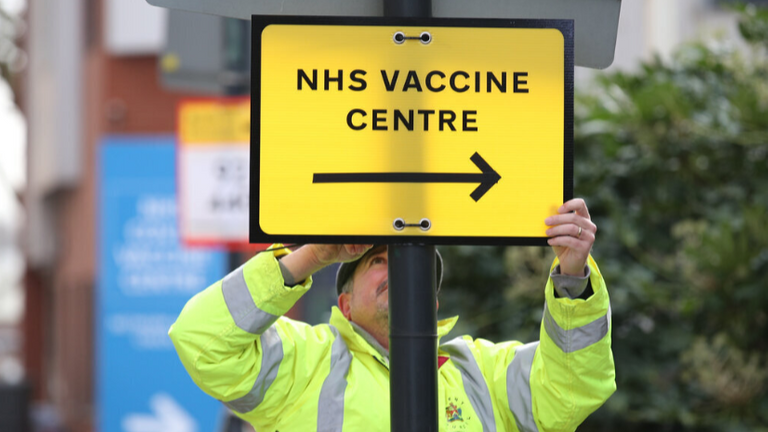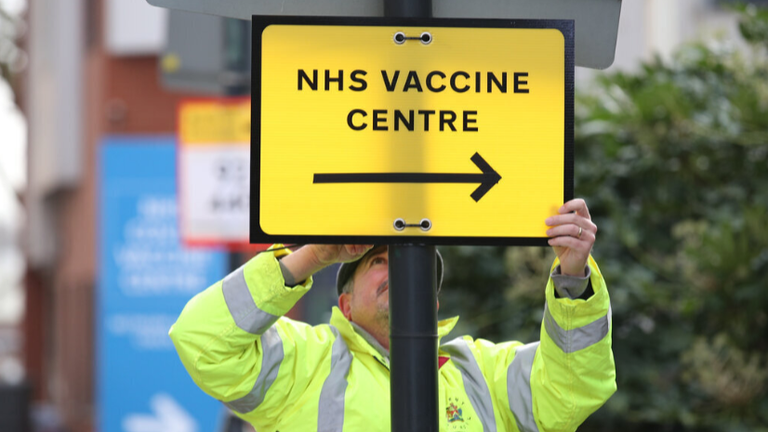
The mutation of the Omicron variant could be down to “reservoirs” of the virus lurking in the unvaccinated and immunosuppressed.
Barry Schoub, the chair of South Africa’s ministerial advisory committee on COVID vaccines added it would be “logical” that the high prevalence of HIV in southern Africa had an impact.
According to Statista, the top nine countries in terms of HIV prevalence are located in the south of the continent.
Live COVID updates from UK and around the world
Omicron – which has 32 mutations on its spike protein – was first identified in the region, although cases are now being found all over the world, including two in the UK.
Professor Schoub, the award-winning author of AIDS And HIV In Perspective who previously advised the World Health Organization (WHO) on several vaccine programmes, spoke to Sky News’ Trevor Phillips On Sunday.
He said: “This virus is a plastic virus – in other words, it tends to mutate very readily.
“And under conditions where it is mutating – particularly in people who might be partially immunosuppressed, in other words where they’re not getting rid of the virus – that remnant virus which remains will be selectively enriched to escape immunity and to become more transmissible.
“So I think that’s probably where it does arise – to a large extent unvaccinated people because they’re a reservoir of the virus, the virus multiplying, and also to a large extent people who are immunosuppressed or partially immunosuppressed because they’re not clearing the virus when they do get infected.”
HIV – or the human immunodeficiency virus – “damages the cells in your immune system and weakens your ability to fight everyday diseases”, according to the NHS.
Asked if the high – but declining – rates of HIV in South Africa maybe part of the story behind Omicron, Dr Schoub said: “It may be part of the story.
“It would seem logical that it could be but you know, there are many causes of immunosuppression – not only people living with HIV who aren’t on treatment.
“People who are on treatment are well controlled – that would not be a problem. They are immunocompetent, like the rest of us.
“But it may well be a problem in those that are not well controlled, not on treatment, who have not started treatment yet. It may be a vector.”
Dr Schoub added that, while research is still being done on the effectiveness of vaccines against Omicron, “we can be fairly comfortably optimistic” that jabs will protect against severe disease.
Follow the Daily podcast on Apple Podcasts, Google Podcasts, Spotify, Spreaker







More Stories
5 Reasons Why Everyone Should Look Forward to Save Earth Mission’s Takeoff Event
Save Earth Mission’s Takeoff Event Countdown Starts: Get Ready to Witness History
The Save Earth Mission: A Global Movement Towards a Sustainable Future